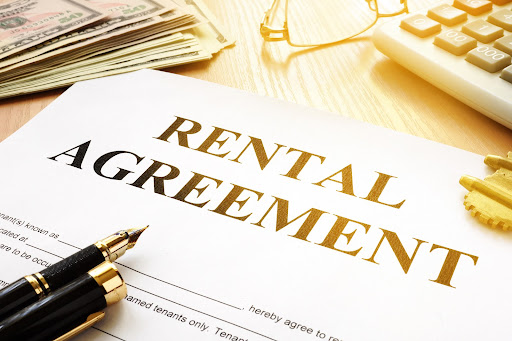When renting out a property, you’ll quickly notice that a lot of your time is spent answering questions from prospective tenants, and you will inevitably encounter some commonly asked questions from them. You should be able to provide clear and concise answers to your tenants. Answering these questions in a professional and courteous manner can help to build trust and foster a positive landlord-tenant relationship. But what are these common questions tenants ask, and how can you answer them?
Let’s go over some examples together in this article.
What's included in the rent?
Tenants may ask what utilities or services are included in their rent. This is an opportunity to be transparent about what they can expect. You can let them know whether the rent covers water, gas, electricity, internet, or cable, and if certain services aren't included, explain how they can set up their own accounts and what the estimated costs will be. Also, it’s likely that some tenants may ask about parking or storage options so it’s worth mentioning if there's a parking spot or storage unit available for an extra fee, and how much that fee may be.
How do you submit maintenance requests?
An essential task as a landlord is to keep your property in good condition for your tenants' safety and comfort. They may have questions about how to report a maintenance issue if needed. In this case, you can provide them with the necessary information such as providing the email address, phone number, or online portal to where they can submit a maintenance request. You also want to clarify the repair process and the amount of time it will take to address reported issues.
By being proactive and responsive to these tenant requests, you can create a good relationship with your renters, thus preventing small problems from escalating.
Can I make changes to the property?
Tenants may want to make changes to the rental property to make it feel more like home. As a landlord, it's important to have clear guidelines on what changes are allowed and what aren't, especially if these changes are not rental-friendly. You may decide that you’re fine with your tenants making minor, nonpermanent changes such as hanging pictures, painting walls, or adding curtains without damaging the property. Others take a stricter approach and don’t allow modifications of any kind.
That being said, most landlords agree that tenants need to ask and seek your approval before making any significant changes such as installing new appliances, changing the locks, or doing any type of renovation. You should also notify them that they will be responsible for any damages caused by their alterations.
Can I break my lease early?
Turnovers and vacancies are two of the biggest expenses that landlords face with their rental property. Occasionally tenants want to break their lease early due to unforeseen circumstances such as a job transfer, a family emergency, or a medical issue. While breaking the lease early is typically not prohibited, this is a decision you’ll have to make (I would make a policy around breaking the lease and put it in your lease beforehand, not handle it case by case which can open you up to a discrimination claim). However,if you do decide to allow the tenant to terminate lease early, we advise you negotiate an early termination fee to help offset the additional expenses you will incur. The fee may be structured in different ways such as forfeiting their security deposit or the tenant paying rent until you find a new tenant.
Can I have a pet?
According to Zillow, as many as 46% of tenants have pets these days. As you can imagine, there is a high likelihood that one of your tenants will want a pet at some point during their tenancy. If your lease doesn’t allow for that, you may want to reconsider your pet policy. If you need help establishing a pet policy, check out our article here.
If you do decide to allow pets, make sure to outline any certain restrictions such as breed, size, and number of pets. You should make sure that ALL pets are properly screened prior to adding them to the lease. You can also monetize your pet policy by adding one time or monthly pet fees or pet rent.
However, if you’ve reviewed your pet policy and don’t want to accept pets, put that is the lease as well. Explain to the tenant that your property is not pet friendly and therefore, pets are not allowed.
Can I have a roommate?
Occasionally tenants may want to get a roommate to help them split the rent or maybe just for the company. If this is the case, let your tenant know that there is a process in place for this. Anyone looking to be added to the lease needs to pass the same screening process as the original tenant. If the tenant passes the screening and pays all the applicable fees, they can then be added to the lease. At this point the new tenant will share all the responsibilities with the original tenant and they will both be held accountable for their respective roommate's actions in case there is any damage caused to the property, which could end up affecting their security deposit.
Conclusion
As a landlord, you need to always be prepared for the common questions that prospective tenants may ask. You should have set policies and procedures for each of these and be able to provide them with clear and concise answers. This will allow you to respond to inquiries promptly and professionally, leading to a smooth and hassle-free experience.
If you have any questions or if we can help in any way, don’t hesitate to reach out!






.png)


